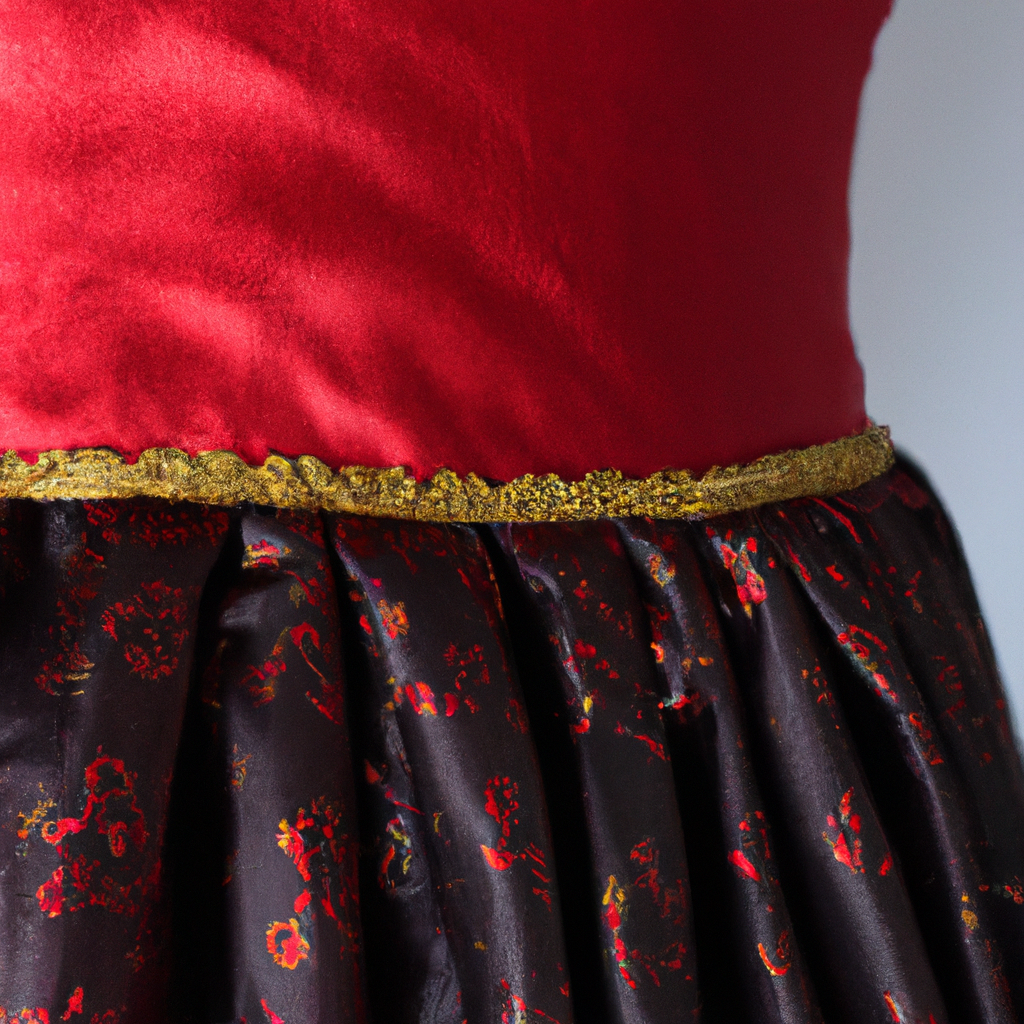From fashion-forward trends to modern interpretations of traditional garb, the art of blending past and present has become increasingly prevalent in the ever-evolving fashion industry. As the demand for culturally inspired designs continues to grow, forward-thinking fashion designers strive to bridge traditional attire and modern fashion to create unique and inspiring looks. In this article, we explore the blending of traditional attire with modern fashion, highlighting how the combination of old and new can be achieved in an innovative and fashionably approachable way.
1. Reviving Ancient Apparel with Modern Style
For contemporary fashionistas, patchwork, appliques, and unique details are always on-trend. Although these design styles have been popular for decades, their origins can be traced back to centuries-old clothing and garments, many of which are still alive in today’s fashion world.
By combing traditional craftsmanship with cutting-edge trends, many fashion designers are able to create stunning, modern pieces of clothing that draw influence from ancient styles. Take, for example, the traditional smock—a quintessentially British style of garment that has been updated for the modern era. In recent years, British designers have printed the smocks with playful colors and adorned them with appliques and embroidery to create stylish, contemporary pieces of apparel.
Today, ancient fashion trends are being brought back into the spotlight with modern design elements. From tailored tunic blouses to color-blocked kimono jackets, ancient apparel is being revived with sensible silhouettes, bold colors, and intricate detailing. Below are some examples of modern-day fashion inspired by ancient threads.
- Retro-styled Chinese tunic suits
- Cascading kimonos with floral prints
- Contemporary smock gowns with lace embellishments
- Necktie-styled scarves and prints
The next time you are looking for unique, fashionable wardrobe pieces, be sure to consider bringing a touch of ancient style to your everyday look!
2. Melding Timeless Elegance with Contemporary Flair
Style trends come and go, but timeless elegant pieces remain. Achieving a perfect mixture between contemporary and traditional can have a big impact on your interior design. Here’s how to get it right:
- Consider Furniture: Investing in classic pieces of furniture, such as an armchair or sofa with a timeless, classic design, will help give your space a traditional feel. Accentuate them with modern pieces, such as headboards or art pieces, for a touch of contemporary flair.
- Choose the Right Materials: To achieve a modern, elegant look, select materials that will last. For a timeless vibe, dark wood furnishings are a great option. For a contemporary contrast, add brighter metals, as well as glass, leather, and fabrics in a wide selection of colors and patterns.
Make the Most of Natural Light: Natural light is the perfect way to bring the outside in and modernize any room. Install large windows that allow in plenty of natural light and place mirrors strategically around the room to do the same.
With these tips, you can create an interior design that effortlessly melds classic with modern and timeless elegance with contemporary flair.
3. Exploring the Intersection of History and Vogue
The rich and diverse influence of history on modern vogue is unmistakable. From the signature cut of a coat to the timeless chic of the ‘little black dress’, the world of fashion often draws on the past for its cues. Here are three areas to explore to gain an appreciation of just how much fashion and history have in common:
Bygone Designs:
From elaborate waists cinchers to sparkling statement jewelry, the fashions of the past can provide outfit inspiration today. Much of modern style is borrowed from what has gone before. Even in a single era, the styles can range from sultry to utilitarian and from delicate to daring.
Modern Reinterpretation:
Time-honored silhouettes and designs are more than just part of the past: they can also be used to create new and unexpected combinations. Color blocking, mixing bold florals, or combining vintage and modern cuts are just some of the ways designers are pushing the boundaries of historic fashion.
Historical Garments:
Those in search of a more authentic look can visit museums or specialist vintage stores to find original historical garments. From the simplest everyday dress to the most elaborately decorated garments, pieces of history can be brought into the present to achieve a unique style.
- Looking for historical inspiration? Check out this list of classic fashion staples through the ages.
- If you’d like to own a piece of history, take a look at this guide to hunting down vintage garments.
- For the most up to date trends, be sure to check out the latest runway collections.
4. Harmonizing Old and New Aesthetic Statements
Designing with both modern and vintage decorative elements presents a unique challenge, but also a great opportunity. To make the statement powerful and unconventional, consider the following:
- Mix textures – layering rainbowed Persian silk carpets, mixed with sleek glass tables and eclectic light fixings.
- Combine materials – pairing weathered marble kitchen tops alongside glossy brass and nickel cupboards.
- Mix colors – contrasting classic whites with vibrant materials for an unexpected, but harmonious color palette.
Various elements need to be considered, such as scale, proportion, signature pieces, and achieving a balanced look. The key to creating a successful old and new aesthetic statement is to believe in the combinations. Injecting contrasting pieces into our lives brings added character, a real sense of novelty, and the surprise of the unfamiliar.
Unconventional pieces and combinations can be combined to create unique and interesting designs that are both timeless and captivating. The design possibilities when mixing old and new elements are endless, making it a favorite among tastemakers who love being boundary-pushing and truly creative.
5. Uniting Traditional Attire with the Allure of the Present
Fashion has come a long way, from the rise of prim pieces to the ubiquity of athleisure. But it’s worth considering which threads have been woven throughout the decades and can bring a sense of heritage and culture.
The traditional attire of one’s family or people from their homeland can be used in modern fashion. By bringing a little bit of the classic to the present, these garments can still be part of a look and represent their proud lineage.
Adding a touch of tradition to a modern ensemble can create a powerful aesthetic. Consider the following elements to integrate ancient wear with current garb:
- Silhouette: Embrace traditional cuts but consider a modern take by mixing with modern shapes. For example, a modern dress with fluttery sleeves paired with a kimono or a boxy jumpsuit with a vintage shawl.
- Color: Reimagine classic colors like tartan red or white cotton with hues such as millennial pink or pistachio.
- Fabric: Try a mix of the contemporaneous with the heirloom material. Update fabrics like cotton with bold prints and textures such as corduroy or gingham.
- Accessories: Balance vintage buttons or scarves with modern jewelry or embellishments.
As traditions evolve, timeless artifacts should be valued and accepted into a modern wardrobe. The fusion of cultures can transform the mundane to a masterpiece – and remind us of the beauty that has been expressed in different ages.
Now more than ever, traditional attire can be used to bridge past and present together, and to provide bold and unique looks. Whether it’s re-imagining the classic kimono or giving a contemporary twist to the Dashiki of the ’60s, the integration of traditional attire allows for creating beautiful ideas about fashion without closing the doors on the rich history of the past. The possibilities of crafting a fabulous new look is now yours for the taking!


